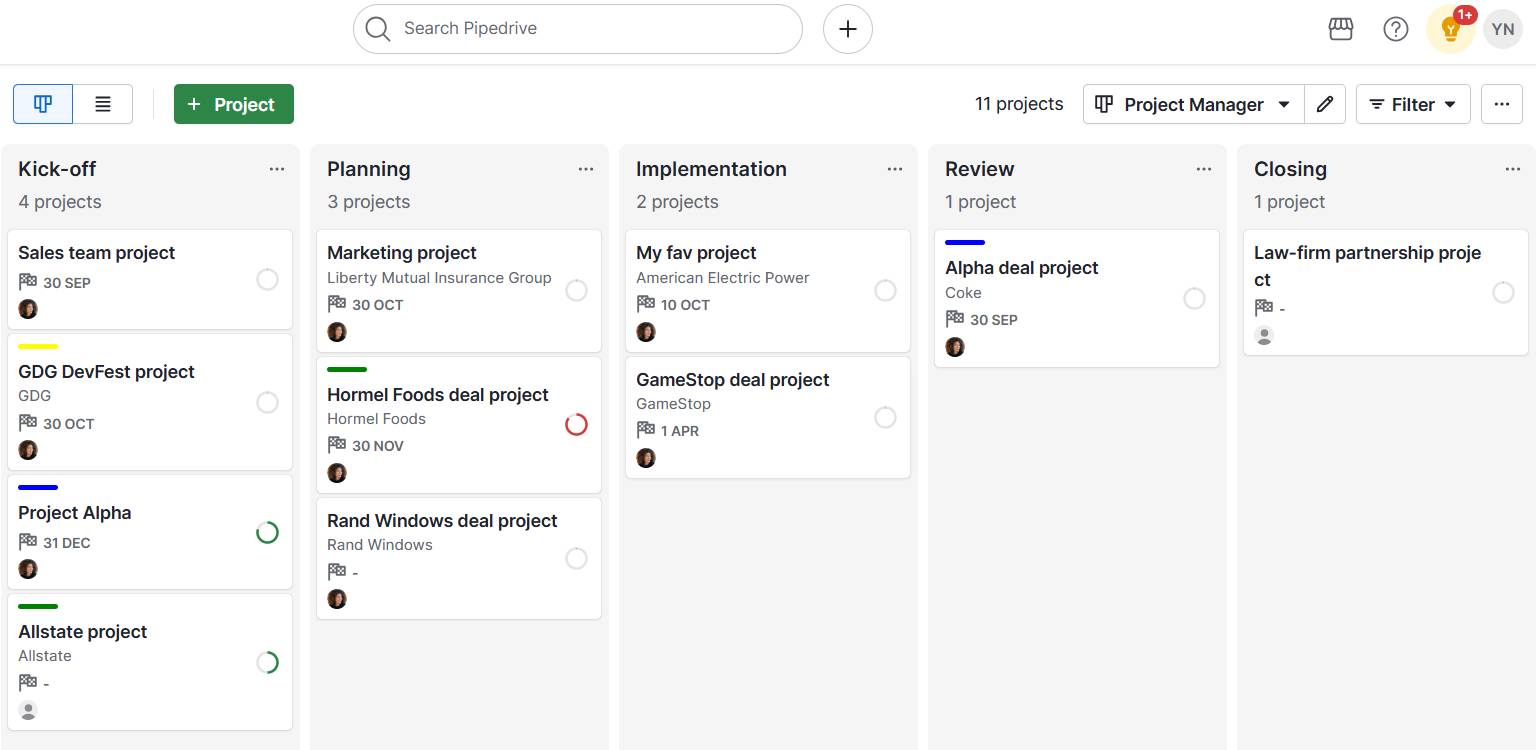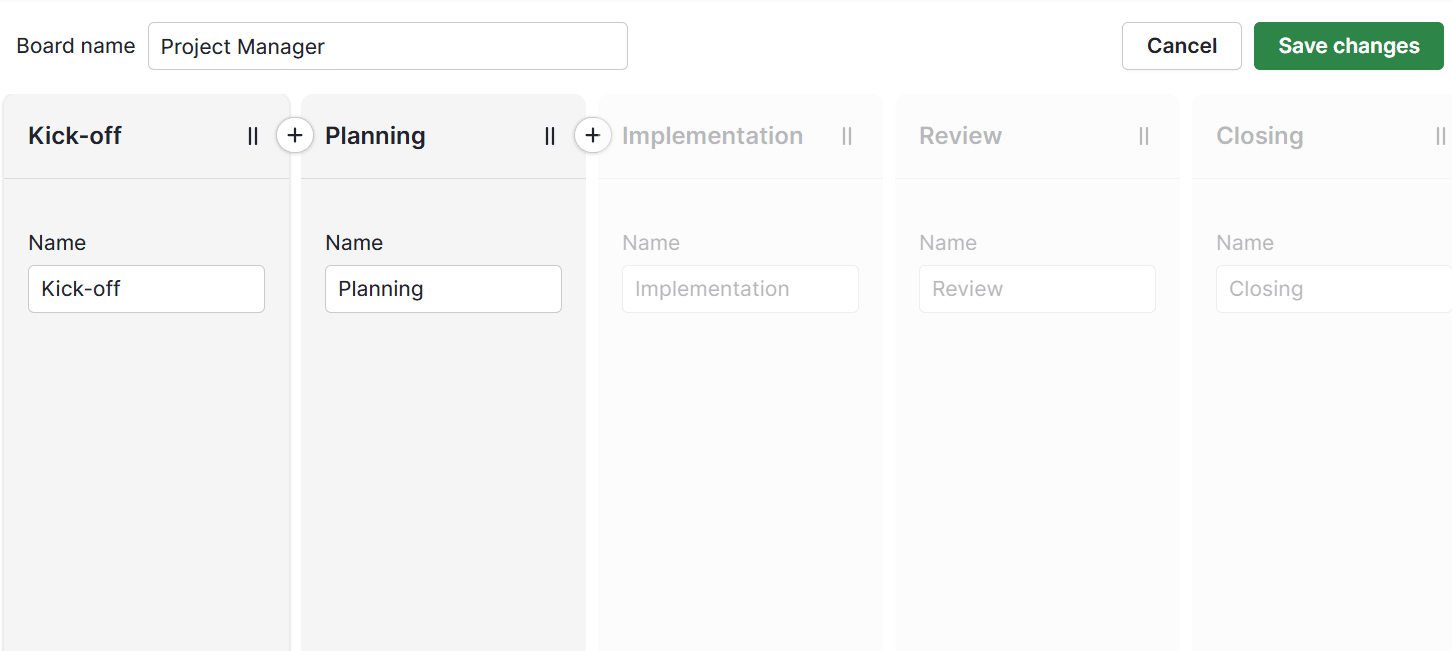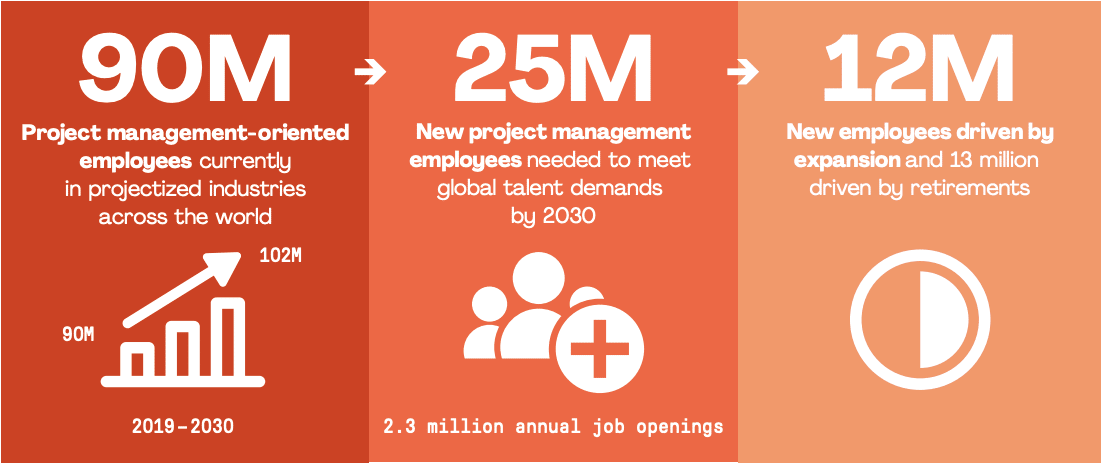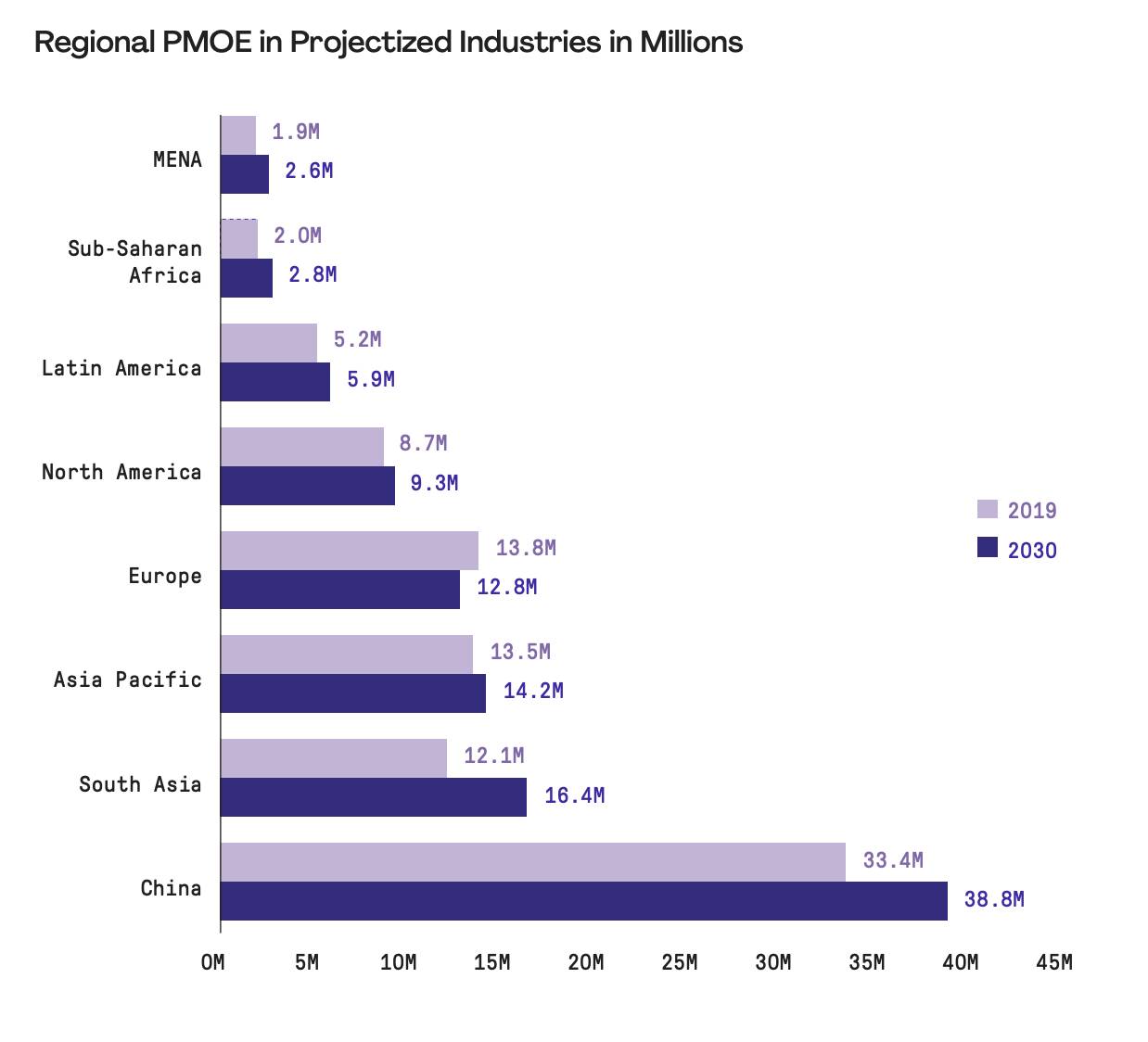Project managers play a central role in helping businesses plan, organize and deliver successful outcomes.
By learning what the job involves and the skills it takes to excel as a project management professional, you can open the door to a career that’s valuable in almost any industry.
In this article, you’ll learn about a project manager’s role in detail and the steps to becoming a project manager so you can start your new career journey today.
Key takeaways from project manager article
A project manager plans, organizes and leads projects from start to finish, ensuring high-quality results on time and within budget.
As a career, project management offers flexibility, advancement opportunities and competitive salaries.
Strong communication, leadership and problem-solving skills are essential, along with the ability to think critically and manage risks.
With tools to track progress, manage resources and keep teams aligned, Pipedrive makes project management more efficient – helping you deliver better results. Start your free trial today
What is a project manager, and why is it such a vital role?
A project manager is a professional who plays the lead role in organizing, planning, executing and closing projects for an organization.
A project is defined as a temporary effort to create value through a new or refined product, service or result.
For example, a content marketing agency might want to implement a system for tracking and optimizing freelancer performance. The process from initiation and planning through implementation to closure and reflection is a project.
While every project has a beginning and end, businesses can stretch initiatives out over long periods or combine multiple projects to achieve more substantial goals (creating what’s called a program).
Depending on the frequency and scope of its projects, an organization may:
Hire a dedicated project manager
Build a project management team, led by a senior project manager
Build a project management team to work alongside a project management office (PMO)
Outsource the responsibility to a freelance project manager
Whatever the setup, it’s the project manager’s responsibility to maximize a project’s benefits for their employer.
This role typically involves risk management, overcoming challenges and ensuring project work stays within time, scope and cost constraints.
What does a project manager do?
In organizing, planning, executing and closing projects, project managers have many day-to-day responsibilities. Here’s a list of the most important tasks in a project manager job description.
Define project scope, goals and deliverables
A project manager works with stakeholders (e.g., company directors, other managers and clients) to clarify what the project needs to achieve and what resources are available.
They’ll help set clear timelines, budgets and scope (the project’s desired outcome and the actions and cost required to achieve it).
For example, say a fashion e-commerce brand wants to expand into a new market and increase total revenue by 10%.
To achieve its goal, it must translate its website content for a new audience, connect with local influencers and choose a new shipping provider. It aims to achieve its main objective within two months with a budget of $4,000.
Build a roadmap
With objectives and constraints set, it’s up to the project manager to map out the tasks and resources required to get there.
For our e-commerce brand, tasks could include:
Identifying specific web pages that require translation
Building a list of prospective shipping partners
Creating a pitch template for targeting social media influencers
Estimating that all tasks will take around 45 working hours, the project manager determines that they’ll need three team members with skills in logistics, sales and marketing on a part-time basis.
Collect and manage the project team
The project manager rallies and briefs their chosen team members, explaining the project’s plan, aims and deliverables.
They’re responsible for allocating work and resources, supporting staff and tracking and managing performance. If challenges arise, such as a missing resource or an incompatibility, the project manager will help team members resolve them quickly.
Manage the project budget
The project manager tracks spending throughout the project, approving expenses and finding ways to increase cost efficiency.
If a project goes over budget, the project manager may need to secure more funds from the PMO or other decision-makers.
Track project progress
Most projects have multiple smaller, individual goals or actions – this is especially true for agile project management, where teams work in sprints toward regular deliverables.
The project manager tracks progress toward these milestones to ensure the main objective stays on track. They address issues or adapt their strategy and update project stakeholders accordingly.
For example, our e-commerce brand could have a milestone of making promotional deals with 10 social media influencers. If the team has only made five deals with three days until the deadline, the project manager could consider pushing the due date back or reassigning another team member for assistance.
Tip: Project tracking software simplifies this process by organizing all your tasks, deadlines and activities. It automates routine tasks, such as notifications, status updates and follow-ups, to boost efficiency, keep your team informed and prevent missed due dates.
Ensure quality
Project work must meet specific quality standards, as outlined in the project’s planning stage, to satisfy stakeholders.
The project manager is responsible for testing deliverables and analyzing performance data (e.g., bugs reported in a software development project).
Quality assurance aims to increase efficiency, avoid overspending and ensure customer or stakeholder satisfaction.
Evaluate and assess project results
The project manager documents the project’s successes.
They consider the challenges and reflect on the entire process so they can replicate winning patterns and avoid repeating mistakes.
Project evaluation typically has two stages:
A closing team meeting where the project lead collects feedback from team members.
A final project report where the project leader shares their findings with stakeholders and, if applicable, the PMO.
For example, while working on its expansion project, our e-commerce brand discovers a new, productivity-boosting project management tool.
The project manager discusses specific benefits with team members before reporting the findings to others in the business. They can then use the same tool to streamline their own initiatives.
Download your guide to managing teams and scaling sales
How project management software can help
Project management software helps automate and streamline the above responsibilities, boosting efficiency and reducing potential human errors.
For example, Pipedrive’s Projects software (included in Premium and Ultimate plans and available as a paid add-on in lower-tier plans) automates tasks, simplifies collaboration and provides clear visibility of progress.

Projects helps you customize pipelines to fit your project’s needs and monitor progress throughout the project lifecycle.
Built-in task management functionality allows you to organize workflows into unique project phases (e.g., Kick-off, Planning, Implementation, Review and Closing).

You can then map out complex projects in Kanban-style board views.
Pipedrive in action: Pipedrive’s Projects software helped mobility service provider Blulinc monitor ongoing projects, learn from past experiences and automate repetitive tasks. Centralizing project management in its CRM (Pipedrive) allowed Blulinc to free up 30% of its sales and project management teams’ time.
Using a project management solution that also serves as a CRM provides access to comprehensive customer and sales data related to specific projects. These insights help managers identify areas for improvement and keep team members focused on the right project goals.
4 reasons to pursue a career in project management
It takes plenty of commitment to enter project management, especially if you’re starting from scratch, so you’ll want to make sure it’s worth your time and effort.
There are many reasons to pursue a project management career. Here are four of the biggest.
1. You’ll be in high demand
The demand for project management talent is growing. The Project Management Institute (PMI) estimates there are currently around 90 million project professionals worldwide and that the global economy will need 25 million new recruits by 2030.

This growth means that you should have no trouble finding career opportunities with the right project management skills.
In an earlier report, PMI wrote:
2. There’s plenty of maneuverability
Project management skills are relevant in all industries, from healthcare to retail, so you’ll never be tied to one company or sector.
For example, PMI reports that project management job openings are growing fastest in the following industries:
Manufacturing and construction
Information services and publishing
Finance and insurance
Management and professional services
Utilities
While the US and China remain major employers of project management professionals, there’s unprecedented demand from project management-oriented employment (PMOE) in South Asia, Latin America and Sub-Saharan Africa, meaning you’ll have the freedom to move geographically, too.

3. It’s a promising career path
Project management certifications and skills provide sturdy foundations for more senior roles, which naturally have higher salaries.
Several years of experience leading successful projects could allow you to apply for other positions with strategic organizational responsibilities, such as:
Portfolio manager
Program manager
Head or director of projects
Chief operating officer (COO)
Chief information officer (CIO)
President or vice president of operations
4. Project managers are well paid
How much do project managers make? According to Indeed.com, the average project manager salary in the US (as of September 2025) is $94,626. However, as in any field, pay can vary depending on your qualifications, experience level and region.
For example, PMI’s Earning Power: Project Management Salary Survey found that respondents with Project Management Professional (PMP) certification earned around 33% more than those without.
What skills make a successful project manager?
It takes a broad range of skills to successfully run project after project.
Many of these soft skills, such as adaptability, leadership or communication skills, are transferable, so you may already have some solid foundations from other roles.
Knowing which skills are important enables you to fill the right gaps and become more valuable to employers. With that in mind, here are eight skills you’ll need to develop.
1. Leadership | You’ll need to be a strong decision-maker with the confidence to direct staff and make strategic changes |
2. Communication | Clear communication ensures that all team members understand the objectives and can work toward the same goals. |
3. Time management and organization | Project managers track many variables, such as budgets, objectives and tasks, to understand what’s happening and manage time effectively. |
4. Critical and strategic thinking | Your ability to distinguish between good ideas (i.e., feasible and worthwhile) and bad ones will help you avoid wasting time and resources. |
5. Accountability | Project managers must manage expectations from stakeholders, directors, clients and team members and take responsibility for all aspects of the project work. |
6. Risk management | When you can predict challenges (through technology, team communication and personal experience) and minimize their impact, you’ll improve outcomes. |
7. Analytical mindset | Analyzing and learning from past projects boosts the chances of success for future ones. Understanding the reporting and dashboard features of project management tools helps make sense of complex metrics. |
8. Problem-solving | Your ability to evaluate options calmly and apply problem-solving strategies can be the difference between achieving your main objective and wasting resources. |
How to become a project manager: a step-by-step guide
It takes time and commitment to become a good project manager.
Even when you’ve secured your first project management position, you’ll need to keep developing your skills to optimize your success rate and keep your employer happy.
Get started on your new career journey today by following the five steps below.
1. Identify and start closing your biggest skills gaps
You may already have useful technical skills in an area like data analytics or a few valuable soft skills, such as communication and time management.
Use the list above to find gaps in your knowledge and start planning your development. Prioritize your weakest areas to build a well-rounded skill set faster. You can then use project management courses to dive deeper into specific areas.
2. Find opportunities to build project management experience
Use the aspects of your current or previous jobs that overlap with project management to start gaining experience early.
For example, a procurement administrator will have plenty of opportunities to practice and learn about resource management. Similarly, a human resources manager will likely use HR analytics software, at least on a basic level.
Identify the shared elements in your current position and spend extra time on them to build your experience.
Tip: Once you’re in an entry-level project management role, you’ll start gaining invaluable experience on the job. Take every opportunity to learn from more experienced project management professionals.
3. Prepare your resume
When you have a basic grasp of all the key project management skills and know which industry you’d like to work in, start putting a targeted resume together.
Along with your newly developed skills, list any relevant tech proficiencies, even if you haven’t applied them to project management methodologies before.
You may be an expert with Microsoft Excel or have a deep understanding of a specific customer relationship management (CRM) platform. These kinds of information technology (IT) skills are transferable and could impress an employer.
4. Start networking
Job boards have project manager positions you can (and should) apply for, but you’ll be competing with hundreds of other aspiring project managers.
Supplement your search by speaking with people who are already in the field, as conversations can yield opportunities.
If possible, speak to the project management professionals in your own business. Tell them your intentions and make it clear that you want to learn about what they do. If an entry-level project manager job opens, you’ll be first on their mind.
Another option is to attend events. Look to your local business community or connect with other project professionals through PMI events.
5. Never stop developing
Once you’ve got your first project manager job, keep going.
The nature of project work means there will always be new variables, opportunities, challenges and objectives impacting your responsibilities.
Whether you’re working with new technologies or adapting to different project management methodologies, you must be ready to learn and improve.
Pick up your copy of the PMBOK Guide (PMI’s flagship resource on project management standards), look out for relevant courses and expose yourself to as many different types of projects as you can.
Final thoughts
As a skilled project manager, you can directly influence the success and growth of any organization you join.
Develop the right skills, and you’ll have the freedom to choose where you work, what you work on and who you work for.
Start your journey today by honing the relevant skills and gaining project experience at every opportunity.
Pipedrive’s project management software is an excellent starting point. Begin your free 14-day trial to discover how it can enhance your project management efforts.








